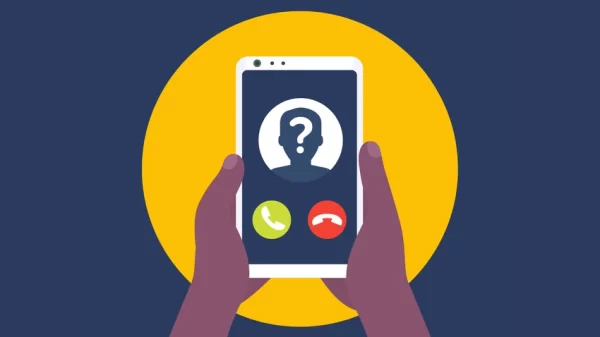Warning: 0120005441, 8008087000, 0120985480, 5031551046, 8009190347, 120999443, 222117258, 120252000, 0120-925-527, 120925318, 120998151, 570005040, 0120988315, 0120991013, 0120988315, 0120989393, 0120633439, 08005003225, 332659022, 120170001, 5088812828, 669104115, 5031599953, 120996085, 120979555, 8002229417, 922615616, 364358073, 8001009127, 5030336342, 120526888, 120917245, 364358073, 0120-252-000, 120868014, 120013175, 671669891, 120397663, 0570 005 040, 0120 247 218, 8007775926, 120426288, 050 3155 1046, 5053704031, 5031213937, 120954484, 0120 999 443, 120952650, 06 6910 4115 and 120961600 in in Japan.
In a world dominated by technology, communication has become more convenient than ever. However, this convenience comes with its own set of challenges, particularly when it comes to dealing with phone scams. Scammers are using various tactics to exploit unsuspecting individuals, and being aware of these tactics is crucial for protecting yourself and your personal information. This article sheds light on the phone call scams in Japan and provides essential tips to safeguard yourself against potential threats.
Phone call scams have become increasingly prevalent, targeting individuals across Japan and exploiting their trust. Scammers often use phone numbers that appear legitimate, making it essential to recognize the signs of a potential scam. Understanding the tactics employed by these scammers is the first step toward protecting yourself.
Understanding Phone Call Scams
- Recognizing Common Scam Numbers
Scammers frequently use phone numbers that seem ordinary or even official. Numbers like 0120005441, 0120991013, 8008087000, 5031551046, 8009190347, and 120999443 may appear harmless at first glance, but they are often connected to fraudulent activities.
- Tactics Employed by Scammers
Scammers use various strategies to create a sense of urgency or importance. They might claim to be from government agencies, banks, or other reputable institutions. By using intimidation or persuasion, scammers aim to trick you into sharing sensitive information or making monetary transactions.
The Impact of Phone Scams
- Financial Losses
Victims of phone scams can suffer significant financial losses. Scammers might coerce individuals into revealing their bank details or credit card information, leading to unauthorized transactions and drained accounts.
- Compromised Personal Information
Apart from financial losses, falling prey to a phone scam can lead to the compromise of personal information. Scammers can use the data they obtain to commit identity theft, open fraudulent accounts, or engage in other forms of cybercrime.
Identifying Suspicious Calls
- Caller ID Spoofing
One common tactic scammers use is caller ID spoofing, where they manipulate the displayed phone number to appear legitimate. Always verify the identity of the caller independently, especially if the call involves financial or personal matters.
- High-Pressure Tactics
Scammers often create a high-pressure environment on the call, pressuring you to act quickly without thinking rationally. They might threaten legal action or claim that you’ll miss out on a time-sensitive opportunity. Stay calm and don’t let urgency cloud your judgment.
Protecting Yourself from Phone Scams
- Being Cautious with Personal Information
Never share personal or financial information over the phone unless you initiated the call and are certain of the recipient’s authenticity. Legitimate organizations will never ask for sensitive details through unsolicited calls.
- Verifying Caller Identity
If you receive a call from someone claiming to be from an official organization, politely hang up and call the official number independently. This ensures you’re speaking to a genuine representative and not a scammer.
- Registering on Do-Not-Call Lists
Consider registering your number on the national do-not-call list. While scammers might still try to contact you, this can reduce the frequency of unsolicited calls.
Reporting Scam Calls
- Contacting Local Authorities
If you’ve been targeted by a phone scam, report it to your local authorities immediately. They can provide guidance on next steps and may be able to take legal action against the scammers.
- Filing Complaints
You can also file complaints with relevant consumer protection agencies. Providing them with information about the scam can help them track patterns and protect others from falling victim to the same tactics.
Educating Others
- Spreading Awareness
Help protect your family, friends, and community by spreading awareness about phone scams. The more people know about these tactics, the less likely they are to fall for them.
- Empowering Vulnerable Individuals
Certain individuals, such as the elderly, might be more susceptible to these scams. Empower them with knowledge about common scam tactics and encourage them to verify information before taking any action.
Conclusion
In an age where technology connects us all, it’s vital to remain vigilant against scams that aim to exploit our trust and naivety. By understanding the tactics scammers use and following best practices to protect ourselves, we can ensure a safer digital environment for everyone.
FAQs
- How can I identify a phone call scam?
Look out for high-pressure tactics, requests for personal information, and suspicious phone numbers. When in doubt, verify the caller’s identity independently.
- What should I do if I receive a suspicious call?
Hang up immediately if something seems off. If the call involves a reputable organization, call them back using official contact information to confirm.
- Are government agencies immune to phone scams?
No, scammers often impersonate government agencies to appear legitimate. Always verify the authenticity of the caller before sharing any information.
- Can registering on the do-not-call list prevent all scam calls?
While it may not eliminate all scam calls, registering on the do-not-call list can reduce their frequency and help you avoid some unsolicited calls.
- How can I help others avoid phone scams?
Spread awareness about common scam tactics, encourage skepticism, and teach others to verify information independently. Together, we can create a more secure environment.

